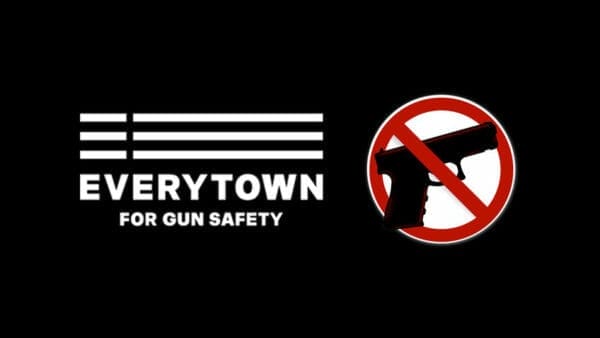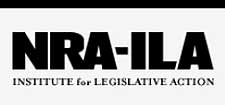
U.S.A. -(AmmoLand.com)- According to the December 10 report from the New York Times, Michael Bloomberg’s anti-gun organization Everytown for Gun Safety is pushing Joe Biden to enact a raft of gun control by executive fiat. As much as Everytown and their would-be autocrat benefactor might wish, the U.S. Presidency is not a dictatorship. The executive actions Everytown contemplates implicate the Second Amendment rights of law-abiding gun owners and are not moored in a credible reading of federal statute.
The article noted that the group has targeted three areas for executive action. Everytown is urging Biden to further restrict the private transfer of firearms between non-dealers, force Federal Firearms Licensees (gun dealers or FFLs) to notify the FBI whenever they complete a firearms transfer following the FBI’s failure to complete a background check within three days, and further regulate unfinished firearm frames and receivers – sometimes referred to as 80 percent frames or receivers.
Federal law (18 U.S.C. § 922(a)) provides,
(a) It shall be unlawful–
(1) for any person–
(A) except a licensed importer, licensed manufacturer, or licensed dealer, to engage in the business of importing, manufacturing, or dealing in firearms, or in the course of such business to ship, transport, or receive any firearm in interstate or foreign commerce; or
Therefore, a person may not “engage in the business” of dealing firearms without a Federal Firearms License. FFLs, of course, are required to consult the FBI’s National Instant Criminal Background Check System before transferring a firearm to a non-dealer.
The term “engaged in the business,” as it pertains to firearms dealers, is defined by statute (18 U.S.C. § 921(a)(21)) as,
a person who devotes time, attention, and labor to dealing in firearms as a regular course of trade or business with the principal objective of livelihood and profit through the repetitive purchase and resale of firearms, but such term shall not include a person who makes occasional sales, exchanges, or purchases of firearms for the enhancement of a personal collection or for a hobby, or who sells all or part of his personal collection of firearms;
Notice that the language does not contain a specific number of firearm sales or transfers that triggers the definition of “engaged in the business.” The language in the definition was carefully crafted to exempt individuals from selling and trading firearms in and out of their private collections, no matter the frequency or volume. Rather, it is when a person sells firearms “as a regular course of trade or business with the principal objective of livelihood and profit” that a person must obtain a Federal Firearms License.
Under this language, an individual who sells 20 firearms in a year with “the principal objective of livelihood and profit” would be required to become an FFL. However, an individual who sells 50 firearms in a year with the principle objective of enhancing their collection would not be required to become an FFL. The definition creates a distinction between commercial and private conduct, rather than various volumes of transactions.
Enacting this statutory definition of “engaged in the business” was a key component of the Firearms Owners’ Protection Act of 1986. Prior to FOPA, BATFE had targeted private individuals at gun shows who sold a few firearms out of their private collections on multiple occasions.
Despite the clear language and legislative history of 18 U.S.C. § 921(a)(21), Everytown is reportedly pushing Biden to place an arbitrary five firearm per year cap on private sales. Everytown’s proposal is particularly egregious given the recent history surrounding this issue.
President Barack Obama’s administration acknowledged that they had gone as far as unilateral executive action would permit on firearms. In late 2015, White House Deputy Press Secretary Eric Shultz told reporters that Obama “has asked his team to scrub existing legal authorities to see if there's any additional action we can take administratively.”
The Obama administration looked into further restricting the private transfer of firearms by executive fiat. Understanding that they did not have the authority to place a cap on the number of private transfers a person may engage in, the administration issued a 15-page guidance document that explained the relevant federal statutes and regulations concerning firearms dealing and summarizing its view of the controlling case law. Given the nature of the issue, one would expect there to be a plethora of Obama-era documents available through the Freedom of Information Act on this topic that would make a policy U-turn politically unpalatable and provide compelling evidence for any potential litigation.
In fact, the statutory language and legislative history are so clear that Biden would not have the authority to enact Everytown’s proposal that Bloomberg anti-gun mouthpiece The Trace has admitted as much. In June 2018, the Bloomberg organ whined, “Under the Gun Control Act, the ATF had wide latitude to pursue illegal dealing charges against unlicensed sellers. FOPA protected private dealers by narrowing the definition of just who qualified as being ‘engaged in the business’ of selling guns.
At present, federal law (18 U.S.C. § 922(t)) provides that an FFL may transfer a firearm to a prospective buyer after “3 business days (meaning a day on which State offices are open) have elapsed since the licensee contacted the [National Instant Criminal Background Check System], and the system has not notified the licensee that the receipt of a firearm by such other person would violate federal law.” This provision ensures that the FBI is not empowered to indefinitely delay a gun sale, either for an inability to conduct a background check or out of malevolence. As NRA-ILA has explained, this three-day safety-valve provision is vital and its elimination would turn the right to keep and bear arms into a privilege.
The Bloomberg proposal to force FFLs to notify the FBI whenever they complete a firearms transfer following the FBI’s failure to complete a background check within three days is an obvious attempt to intimidate FFLs into not transferring a firearm to individuals burdened by FBI’s inability to perform what is supposed to be an “instant” background check. This would curtail the ability of many individuals who routinely experience a lengthy NICS to access firearms at all.
There is no statutory language authorizing this requirement. Further, the proposal is unnecessary given current federal law enforcement practice. In the rare instance where a firearm is transferred to an individual following the three-day period and the FBI subsequently determines that the individual is prohibited from possessing firearms, ATF will then retrieve the firearm.
Concerning unfinished frames and receivers, the current federal statute and regulations are clear. Federal law defines a “firearm” to include “any weapon (including a starter gun) which will or is designed to or may readily be converted to expel a projectile by the action of an explosive” and “the frame or receiver of any such weapon.” In the Code of Federal Regulations (CFR), “firearm frame or receiver” is further defined as “That part of a firearm which provides housing for the hammer, bolt or breechblock, and firing mechanism, and which is usually threaded at its forward portion to receive the barrel.”
In order to treat unfinished frames and receivers as firearms, ATF would be required to broaden the definition of “firearm frame or receiver” in the CFR. Such a change is inadvisable and should at the very least require a formal rulemaking under the Administrative Procedure Act.
By targeting the materials Americans use to make their own firearms, Everytown and Biden would be striking at the core of the Second Amendment right in a manner that has no basis in the text, history, and tradition of the right. Since long before the founding, Americans have enjoyed the right to make their own firearms for personal use without government interference.
NRA-ILA will continue to monitor any attempts to enact unlawful gun control through executive action and stands ready to challenge such measures should they arise.
About NRA-ILA:
Established in 1975, the Institute for Legislative Action (ILA) is the “lobbying” arm of the National Rifle Association of America. ILA is responsible for preserving the right of all law-abiding individuals in the legislative, political, and legal arenas, to purchase, possess, and use firearms for legitimate purposes as guaranteed by the Second Amendment to the U.S. Constitution. Visit: www.nra.org

The post Everytown Encourages Biden to Pursue Unlawful Executive Gun Controls appeared first on AmmoLand.com.
from https://ift.tt/2KlDjY6
via IFTTT

No comments:
Post a Comment